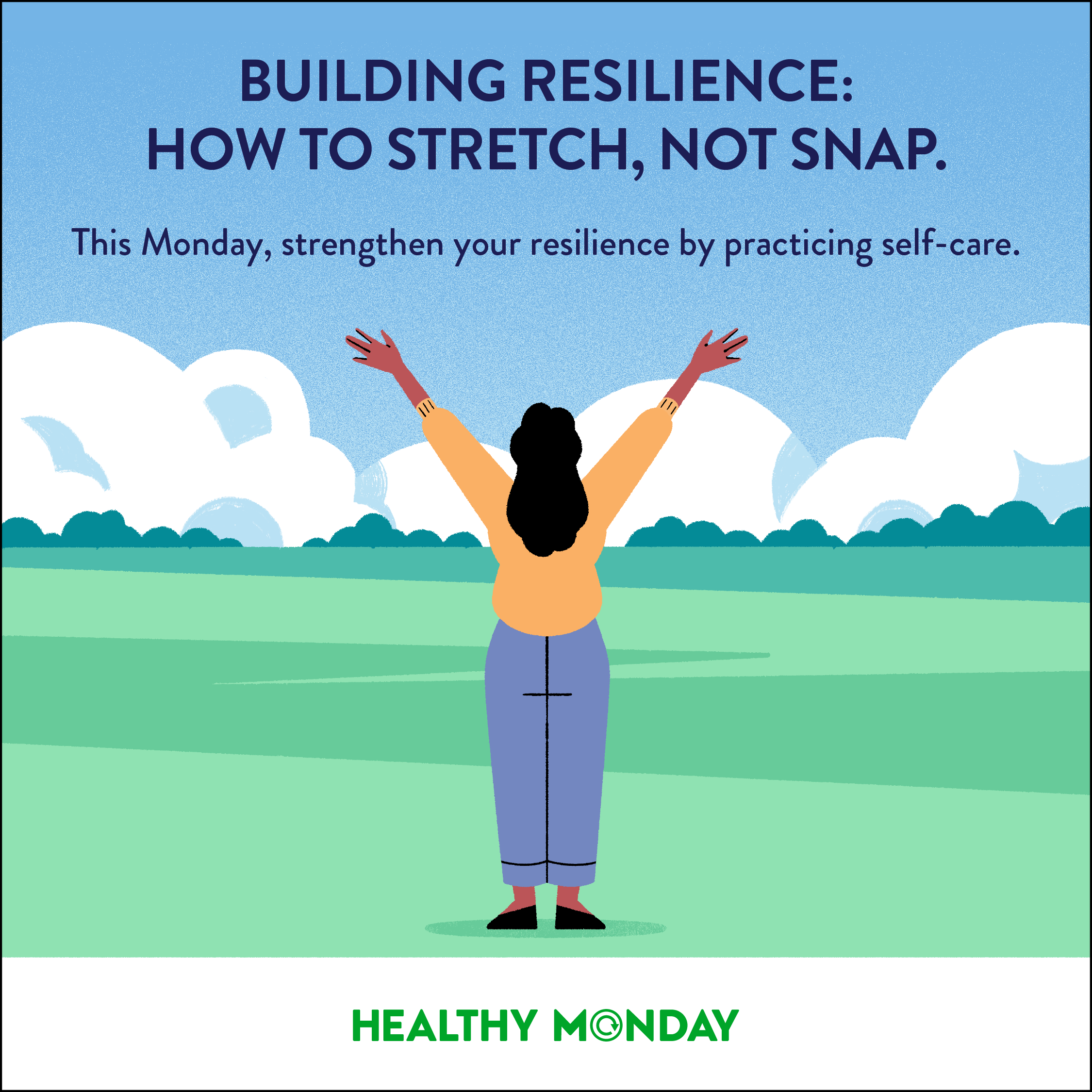Strengthen Your Resilience to Overcome Daily Challenges
When it comes to navigating through life’s adventures, there is no guidebook, clear path, or set destination. As a person voyages through the unknown, he or she will inevitably encounter obstacles that may slow forward progress to a standstill. Having to continually address problems, meet demands, and overcome challenges can be draining—both physically and emotionally.
This prolonged state of physical, mental, and emotional strain is known as burnout.
Many of us are familiar with this feeling. Symptoms of burnout include lack of energy, lethargy, feelings of failure and resentment, change in appetite or sleep, and frequent headaches or illness, such as the cold and flu.
And although burnout and stress may appear similar, there are distinct differences between the two. While feelings of stress can be instantaneous, temporary, or situational, burnout develops over time, the product of constant pressure, exhaustion, and disappointment over an extended period of time that leaves a lingering sense of hopelessness that is difficult to overcome without a concentrated effort, which bring us to the idea of resilience.
What Is Resilience?
According to the American Psychological Association, resilience is defined as, “the process of adapting well in the face of adversity, trauma, tragedy, threats, or significant sources of stress.” Formal definition aside, it’s most useful to think of resilience as the ability to cope with life’s changes and challenges, while simultaneously learning and growing from them. Resilience isn’t an inherent personality trait, like any other skill, resilience needs to be studied and practiced before it can be used effectively.
How to Build Resilience to Overcome Challenges
Building resilience against burnout allows you to recover quickly from setbacks, as well serve as a beacon of positive energy for others. This Monday, learn how you can you can strengthen your resilience by focusing on self-care, creating a support network, talking through your feelings, and refreshing your positive intentions. Using the techniques and practices below will prepare you to battle burnout whenever it arises.
Focus on Self-Care
Burnout impacts your physical and mental wellbeing, which means you must take care of both your body and mind to mitigate its effects. Adhering to a mostly plant-based diet, staying hydrated, engaging in routine physical activity, and getting good quality sleep are all different ways to help you stay energized. Focusing on clarity of mind through practices such as mindfulness, journaling, deep breathing, and meditation may reduce stress, anxiety, depression, or any other feeling that is stifling your progress. Another element of personal wellness is avoiding negative influences, like drugs and alcohol, which merely mask the pain without addressing the root of the problem.
Talk Through Your Feelings
During periods of stress or frustration it’s easy to get stuck in your own head. But don’t let negative thoughts bring you down; by talking about your feelings, you can better manage and process them. One particularly effective exercise is to find a friend or family member with whom you can share ten minutes of uninterrupted speaking time. For the first five minutes, person one does all the talking, and for the next five minutes, person two gets the opportunity to talk. Both speaker and listener should do their best to be honest and present in moment, a practice known as mindful listening. If you don’t have access to a talking partner, journaling is a great alternative to get your thoughts out of your head and down on paper.
Create a Support Network
Burnout might make one feel anti-social, but this is not the time to remain in isolation. A network of family, friends, and colleagues can offer comfort during periods of frustration and loneliness. By simply reaching out to people, whether through text message, telephone call, email, or social media, you are strengthening relationships that will ultimately provide the energy and confidence required to overcome burnout. And thanks to the internet, there are plenty of online groups and communities that will offer safety and compassion through a shared identity or goal.
Refresh Your Positive Intentions
A defining characteristic of burnout is a feeling of helplessness. By spending your time in meaningful ways, you can reignite your passions. Be proactive in your pursuit of happiness. Use positive affirmations, or ask yourself, “What can I do to change the problems in my life?” If the problem appears to challenging or overwhelming, break it down into more manageable pieces. By using concepts like the Monday Refresh, you can recommit to your goals and aspirations each week with a fresh outlook and positive mindset. Another way to find purpose is by spreading kindness. By helping others, be it with a smile, compliment, or attentive ear, you are reinforcing your own self-worth and power.



